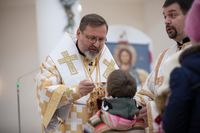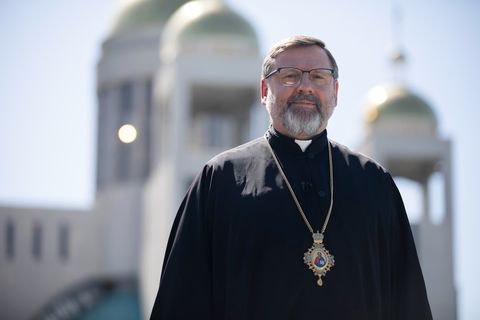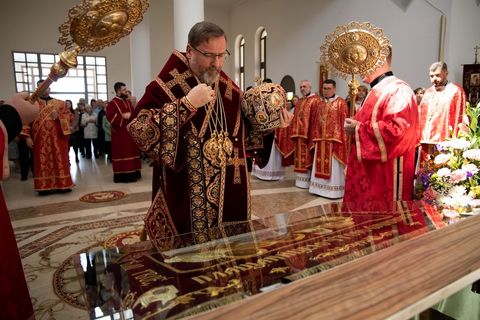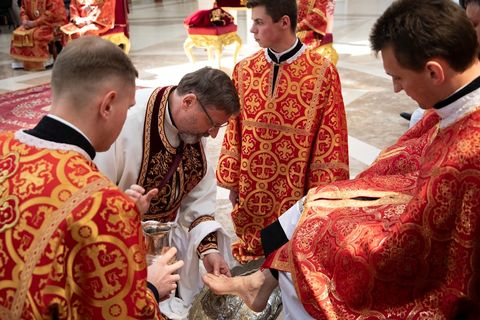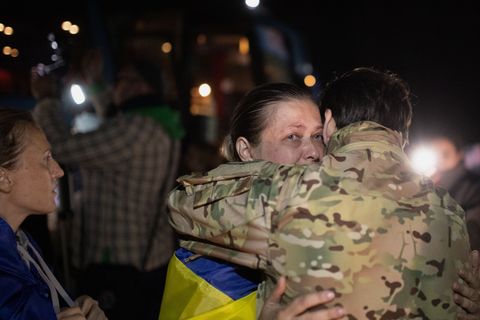Those who are grateful to God for what they have will receive even more: His Beatitude Sviatoslav
Gratitude to God restores a person’s strength, raises the tired, and infuses life into the dying. Indeed, it is very human to get tired, to exhaust oneself. There is nothing wrong with it. Those who are depleted must know the way back to the source from which they can draw even more strength. Those feeling tired should know the way to the One who can turn this fatigue into renewed strength. His Beatitude Sviatoslav, the Father and Head of the UGCC, said this in his sermon on the 32 nd Sunday after the Descent of the Holy Spirit, January 14, at the Patriarchal Cathedral in Kyiv.
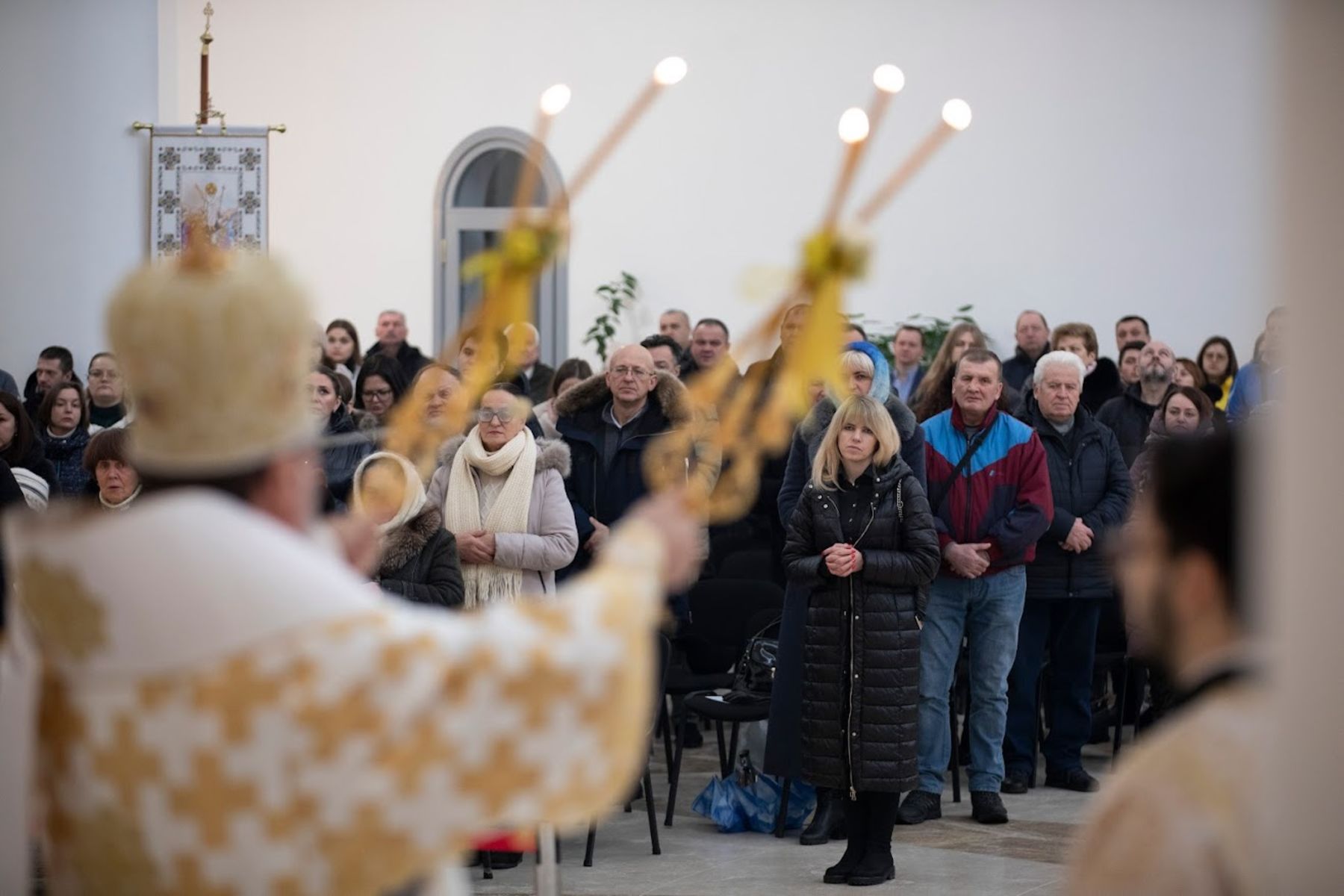
At the beginning of the sermon, His Beatitude Sviatoslav drew attention to the dynamics of today’s Gospel passage. The story of the healing of the ten lepers is a story that is in constant motion. The lepers cannot approach the settlement; they have to talk from afar to everyone they meet along the way. Nevertheless, they approach Christ as close as possible and ask Him for cleansing. Christ makes them move and sends them to the priest because, according to the Old Testament Law, the priest is a kind of overseer of the health of his people.
Yet we also hear about the opposite movement, the movement of gratitude. Out of ten people who recovered, only one returned. Interestingly, he was a Samaritan, i.e., a stranger. It was the stranger who felt that Christ was the living God present. Christ came to His people, but His people did not receive Him, so the one who returned to give thanks did not just receive physical healing but became one of them, not a stranger, but a partaker of the Kingdom of God, which has drawn near to man. He received much more than he asked for.
“A person’s thankfulness is gratitude, the ability to thank the one from whom I received a gift. It is a profound spiritual act,” said the Patriarch. “Gratitude changes a person, expands his heart, makes him able to return to the source of grace, and thus makes him able to receive much more than he initially received.”
His Beatitude Sviatoslav noted that thanksgiving is the highest form of Christian prayer. We often hear the word “Eucharist,” the communion of the Body and Blood of our Savior. But “Eucharist” also means gratitude. Today’s Gospel story ends incredibly. Christ says to the grateful Samaritan: “Arise and go.” The early Christians understood the word “arise” as a resurrection command. It is meant to be infused with eternal life and “go” to witness the presence of the living God among people.
“How important it is for us, Christians in Ukraine, to be grateful during the war!” said the Hierarch. “Sometimes during the war, we tell the world what the world still lacks to do for us. Sometimes, we rebel and argue even with the Lord. ‘God, why haven’t You given us the first, second, third options?’ However, if we are grateful, we see what we have already received.”
“Let us together, as the people of God, the sick people of Ukraine, faithful disciples of Christ, thank the Lord God for everything we have received from Him,” the Primate called. He assumed that perhaps every time we go down to a bomb shelter during an air raid, we believe that this time we are living now is akin to a loan and God’s trust in us, which we cherish to the fullest. At any moment we can lose everything. In light of this, he urged to be grateful to God and be open to receiving even more.
The UGCC Department for Information